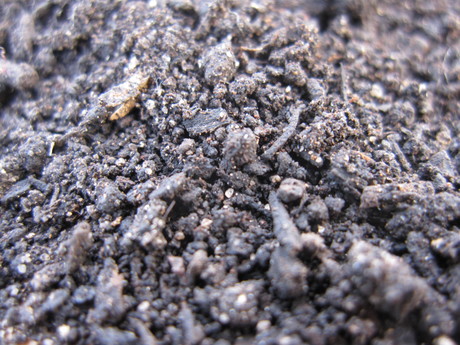Bags not! Finding the solution for Australia's plastic bags

The recent Ministerial Roundtable on plastics could not agree whether to ban, price or leave single-use plastic bags (SUPBs) for another day. We use approximately 6 billion SUPBs each year, of which 2% are recycled.
SUPBs are being, or have been, banned in South Australia, Tasmania, the ACT, the Northern Territory and in some localised townships.
The choice of ban vs price (say, a 10-cent levy) is one of economic efficiency. Bans are black or white, yet pricing leaves room for progressive behaviour change and infrastructure development, while potentially raising money for worthy causes.
But it is pretty clear that there is finally a national appetite to address SUPBs. Whether agreed or not, it is important that we get the transition right.
Let’s be very careful that we do not replace 6 billion SUPBs with something that doesn’t work.
We still need to go shopping.
Also, many councils are now offering householders food organics and garden organics (FOGO) collection bins to recover the 60% of organics an average household generates. These three-bin services usually involve a small kitchen tidy and the supply of biobags. The FOGO that is collected is usually taken to a large composting facility. SUPBs are a big problem in composting facilities, but so are many of their so-called alternatives.
So if we do away with SUPBs, what do we replace them with, especially for our shopping and FOGO services?
The alternatives
The short answer is that we need to replace them with compostable bags. What does that mean?
In the Australian marketplace we talk of ‘degradable’, ‘biodegradable’ and ‘compostable’ bags. There are also ‘oxo-degradable’, ‘solar-degradable’, ‘recycled’, ‘recyclable’ and ‘re-usable’. Not much help.
They are not equal. They are not the same. And most of these gum up composting facilities.
A degradable bag is usually made from plastic, such as polyethylene, with a polymer added to ensure breakdown over time (after exposure to light, oxygen and heat) into small fragments. They break down to create lots of small bits of plastic (microplastic) which are as bad, if not worse than SUPBs.
They are also a complete pain in composting facilities where they contaminate the finished compost product.
The bottom line is that degradable bags are not a good solution.
Some plastics manufacturers include additives to accelerate degradation and label these bags as biodegradable. However, the term ‘biodegradable’ is very loosely used.
The School of Packaging at Michigan State University summed it up well: “The ultimate goal of biodegradation is to totally break down the molecular structure of the polymer, returning the carbon in the plastic to the normal geological carbon cycle. In many cases, biodegradable bags do not achieve this state and leave behind physical residue in the form of microplastic (typically any piece of plastic less than 5 mm long and sometimes not visible to the naked eye), including microbeads.”
The bottom line is that biodegradable is not a reliable definition for something that will compost and not pollute.
‘Compostable’ bags, on the other hand, are made from plant material such as starch. They break down completely into ‘humus’, carbon dioxide, heat and water. They also fully decompose in composting facilities.
The Australian Organics Recycling Association (AORA) supports a ban on all SUPBs. Similarly, it seeks confirmation that all replacement products are compostable and meet the requirements of Australian Standards 4736 and AS5810 for composting.
The bottom line is that compostable replacements offer a viable alternative.
Conclusion
We have got to get this transition right.
Organic waste represents over 50% of all waste we landfill, or 10 million tonnes. It is 60% of what an average household generates.
Organic waste in landfill breaks down anaerobically to generate methane, which, if not captured, leaches into the atmosphere. Methane is a potent greenhouse gas (25 times the global warming potential of carbon dioxide) and accounts for 11 million tonnes of Australian greenhouse gas emissions per annum.
There are transition issues we need to consider. It is true that, until we get national FOGO bin servicing, many compostable bags will end up in landfill and contribute a tiny amount to methane generation. But they are such a small percentage of landfill tonnages (0.1%) that their contribution during the rollout of FOGO nationally will be negligible.
Councils and food retailers with food or organics collection services need to ensure their tenders specify compostable bags that meet AS4736.
So here is the takeaway message. A compostable bag is biodegradable. But a biodegradable bag is not necessarily compostable. So if it is not certified compostable, don’t use it.
Originally published here.
How to navigate Australia’s new climate regulations
Australia’s new mandatory climate reporting regulations are set to take effect next year,...
A concrete use for carpet fibres
Australian engineers have come up with an unexpected use for discarded carpets: as a means to...
COP29: finance, a "crucial" opportunity and a seat at the table
Leaders and diplomats from around the world are descending on Baku, Azerbaijan, this month for...









